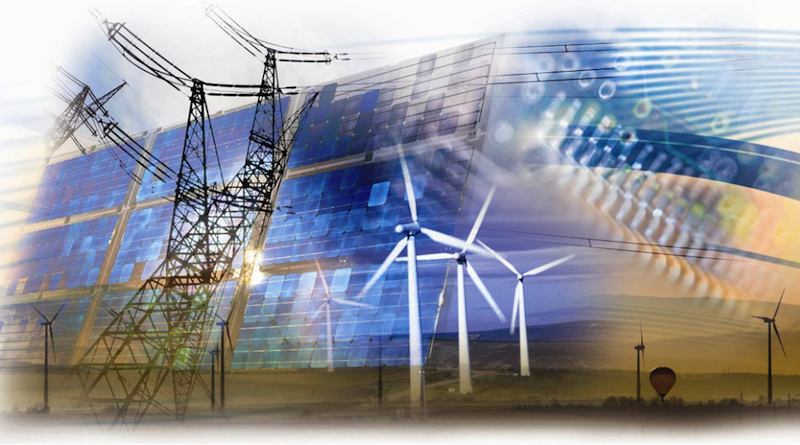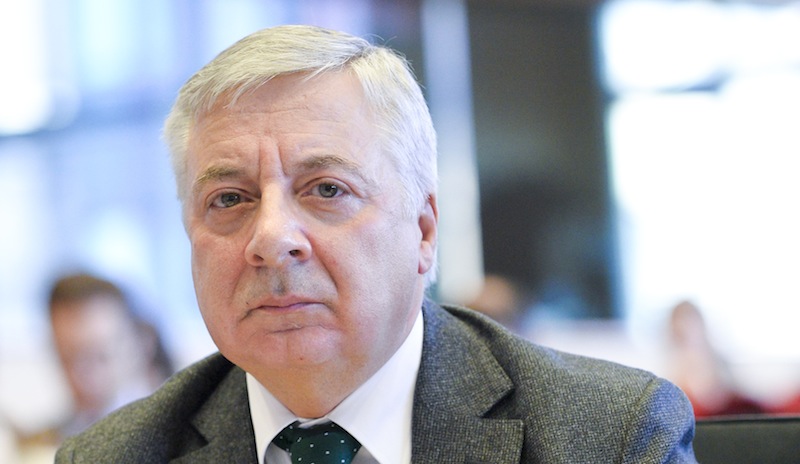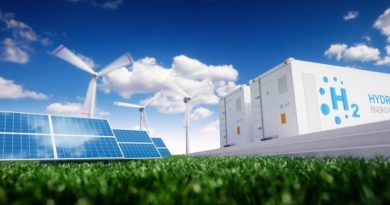
Ambitious targets for a carbon-free EU
Over the past months, we have witnessed one of the most intense and devastating hurricane seasons ever known. It’s also been the season with the strongest hurricane ever recorded in the Atlantic Ocean.
On the other hand, July has been the warmest month since records exist. And in the very same Europe we live in, we’ve suffered in Spain and in Portugal the disastrous effects of severe drought and forest fires.
The estimated annual global cost of natural disasters amounts to some $500 billion. The number of refugees exceeds 65 million people, 20 million of them due to climate change.
If not significant steps are taken to reverse this phenomenon, sea levels could rise by two metres. It’s also worth recalling that two thirds of humanity lives in coastal areas.
Some may not want to face the reality of climate change. But its effects beat us. Every day more virulently. Every day more lethally.
We are living at a crucial moment, one of those moments when we have real capacity to determine the future we want for ourselves and for the next generations.
Just two years ago, we sent in Paris a strong message to our fellow citizens: we cannot just carry on. We cannot continue to consume natural resources or to base our development on fossil fuels that threaten the future of our planet.
We must stop global warming and we have to do it now. That was the message of the Paris Agreement, a historic agreement since it shows all nations’ commitment to fight climate change.
Moreover, notwithstanding the United States’ withdrawal from the Agreement, the whole world has ratified this commitment, with the European Union at the forefront. But the fight against climate change is not about big words but about deeds.
I share the philosophy behind the clean energy package.
In fact, I strongly believe that it is a comprehensive initiative which tries to face the challenge of climate change. But it falls short.
If we want to boost the energy transition and to reduce our greenhouse gases emissions by at least 40% by 2030, we need to do more.
I believe that the renewable energy directive plays a crucial role in all this, but it needs real ambition. Otherwise, it risks getting outdated before coming into force.
As Parliament’s rapporteur for this directive, I think that the 27% target put forward by the Commission taking account of the Council proposal is poor.
First, it does not reflect the sharp drop in costs that renewable technologies have expe- rienced in recent years. Moreover, it is absolutely insufficient to meet our commitments as reflected in the Paris Agreement.
That is also the case in the heating and cooling and transport sectors, which are crucial to achieve the goals in the field of decarbonisation since they concentrate most of the energy consumption.
And more effort is needed in the field of self- consumption. While sharing its recognition as a right, I belong to those who believe that there’s more to be done.
That’s why I strongly believe that the Industry and Energy Committee has taken a step in the right direction. On November 28th we sent a strong message by setting a binding target of at least 35% of renewable energy across the EU, backed by a large majority.
That’s the ambition we need in order to fulfil our Paris commitments, to fight climate change and to lead the energy transition.
The Industry and Energy Committee also wants to reinforce self-consumption as a right –guaranteeing, for example, that self-con- sumers are entitled to consume their self-generated renewable electricity, which remains within their premises, without liability for any charge, fee or tax; to bring security and certainty to investors ensuring, for example, that regulatory changes do not have a negative impact on the economics of the supported projects or, in such cases, guaranteeing a compensation; to raise the ambition for de-carbonising the transport sector raising the suppliers obligation or the sectoral target, as well as the heating and cooling sectors doubling the objective.
As the International Renewable Energy Agency (IRENA) has calculated in a recent study, the EU can double its renewables share from 17% in 2015 to 34% in 2030 in a cost- effective manner. It could be even higher if we rise our energy efficiency target to 40%, as ITRE Committee recommended.
Studies like this one show that the commitment to renewable energies can no longer be considered in terms of cost, but in terms of investment.
Investment with environmental benefits, of course, but also in technological development, job creation and economic growth, energy independence and competitiveness.
Therefore, it’s high time to remove barriers, provide legal security and promote renewables.
Let’s take advantage of the maturity they have achieved in order to realize the Union’s energy transition towards a decarbonized economy which will boost ecological growth.
I hope that the European Parliament, the Council and the Commission will be up to the task.
Business as usual is not an option.




